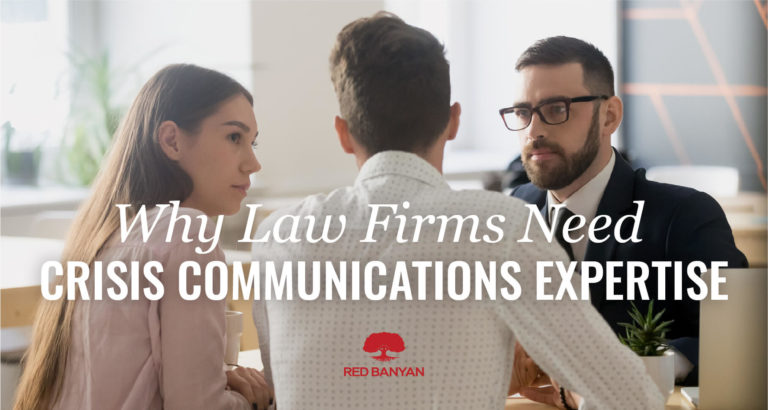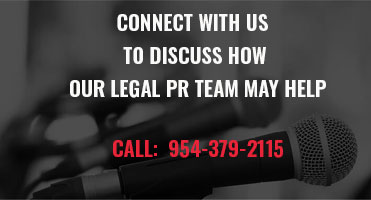Why Law Firms Need Crisis Communications Expertise

With today’s growing popularity of social media and an “always on” news cycle, law firms cannot ignore the need for crisis planning and communications. Bad news travels fast, but with the ubiquity of social media, the wrong information can be transmitted at lightning speed across the globe in seconds. Law firms that want to stay ahead of the curve should have a crisis response plan and a social media policy in place so they are prepared.
For law firms small and large, social media can be a powerful tool if used correctly. Through social media, law firms have the ability to curate and control the narrative about a wide range of topics. But while the advantages of social media are significant, there are also some serious risks.
Bad news or poorly-conceived posts may go viral and wreak all kinds of unanticipated havoc. Mismanaging your law firm’s social media presence can be devastating to your organization. Social media crises require fast action but what to do is not always clear. Taking the right kind of action may require the guidance of a professional crisis PR and communications agency like Red Banyan with years of experience tamping down online emergencies.
How to Best Protect Your Law Firm
- Establish a Law Firm Social Media Policy Implementing a comprehensive social media policy is the best way to protect your law firm from a social media crisis. This policy should clearly outline employee expectations and appropriate use across all the law firm’s accounts. Your law firm’s social media policy should also include copyright guidelines that instruct how to properly use and credit third-party companies; privacy guidelines that outline how employees should interact with potential clients online; confidentiality guidelines that specify the information employees are allowed to share, and law firm voice guidelines that describe the tone that should be used to create posts. The policy should also include language that addresses the way employees conduct themselves on personal accounts to safeguard the firm’s reputation.
- Formulate a Law Firm Crisis Management Plan Creating a crisis communications management plan before you need one will give your law firm a head start if an emergency occurs. When disaster strikes, it is essential to take control of the law firm’s social media from the start. Your crisis management plan should establish guidelines for assessing the severity of a crisis and identifying the stakeholders who will be affected. The plan should also identify the key roles and responsibilities of each member of the crisis team. A comprehensive crisis response plan will also include approved messaging for the media and the law firm’s social media accounts. Making decisions on the fly is difficult so it is never a good idea to come up with crisis response plans in the midst of an emergency. Planning ahead reduces the likelihood of mistakes and eliminates unnecessary stress. Make sure to create in-depth messaging ahead of time so it is ready to go when an emergency occurs. Official statements, press releases or video messages from shareholders can be prepared ahead of time.
- Halt Your Law Firm’s Scheduled Social Media Posts When an emergency occurs, social media is the quickest way to communicate news to stakeholders, so halt all previously scheduled social media posts to avoid confusion. Generic “evergreen” posts have no place in the middle of a crisis. Your law firm’s social media team should instead be busy posting news relevant to whatever crisis is occurring. Other irrelevant posts would be distracting. Social media posts that are created during an emergency should be informational and instructional to the stakeholders who will look to your social media channels for information. Send out posts that acknowledge the problem, apologize (if necessary) and provide information.
- Engage Social Media Posters with Discretion Responding on social media to queries, complaints or comments should be done with caution and discussions that get dicey should be moved offline. Keep your answers short and informative. Offer to connect with users through email, phone, or private messaging in an effort to move prolonged conversations off of social media.
NEED LEGAL PR HELP Right Now?



